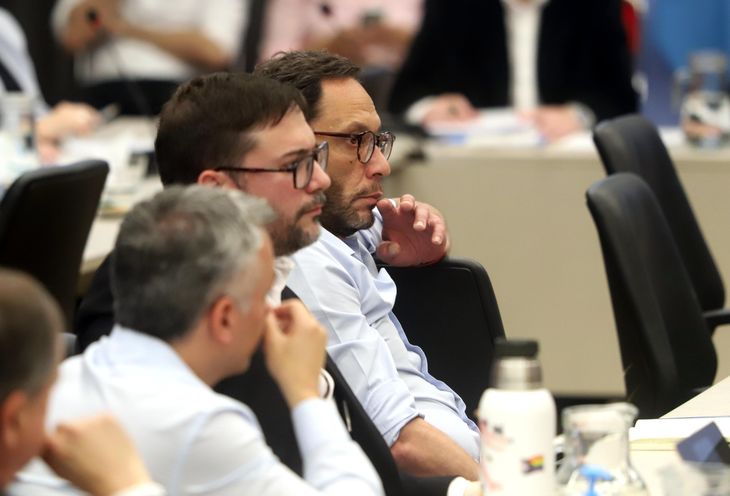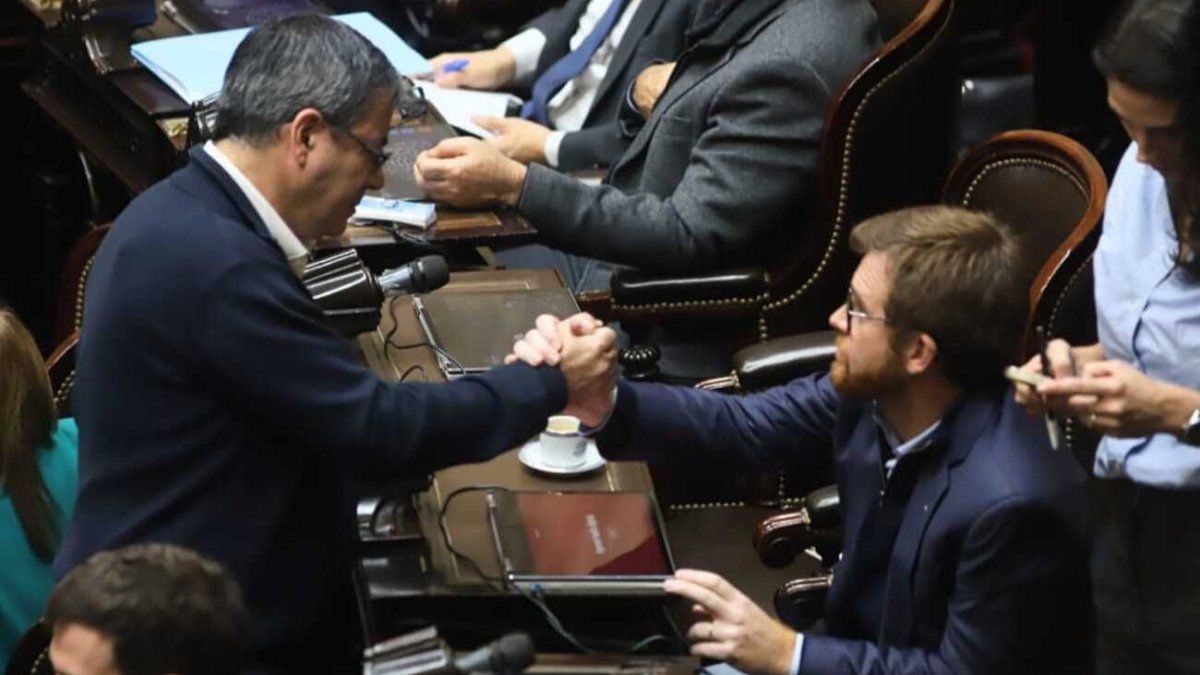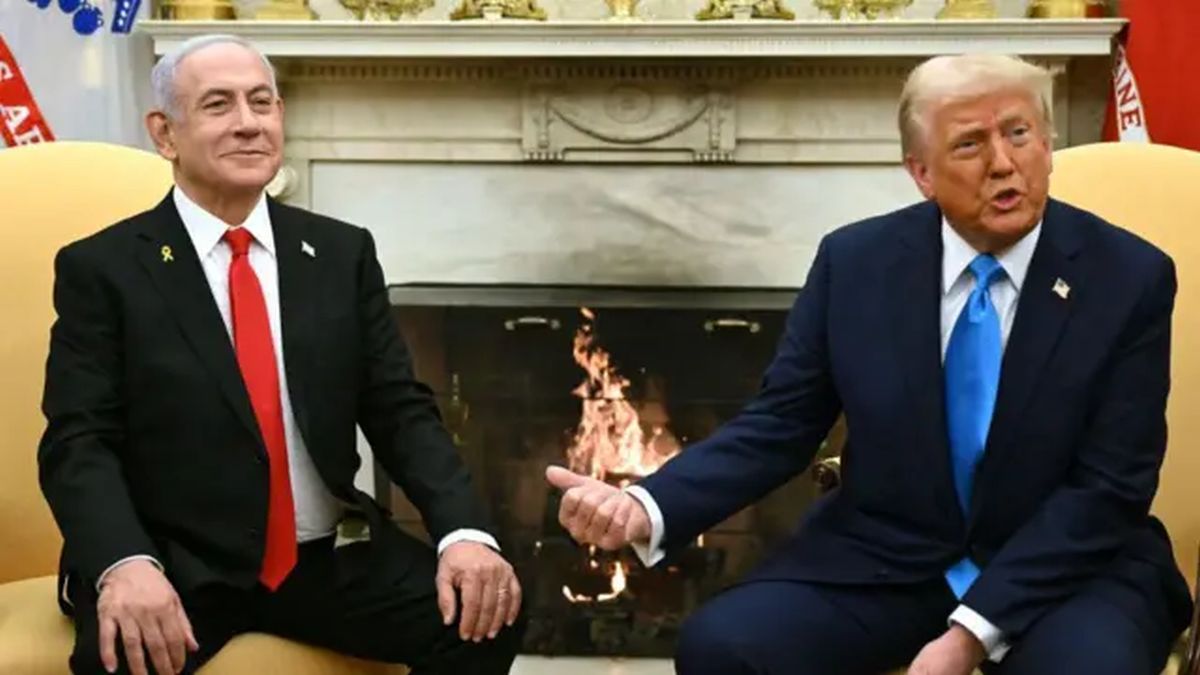Bad news for him government of Javier Milei in it National Congress: the arc of opposition blocs, which was consolidating against the presidential vetoes, once again united positions to vote against the regime of sanctions and review of the Decrees of Necessity and Urgency (DNU).
The session was called for next Tuesday, November 12 at 3 p.m. and will include accompaniments from the blocks Federal Meeting, Union for the Homeland, Democracy forever (dissident radicals) and the Left Front: If they have no absences and take a unanimous position, they would obtain the parliamentary majority to modify the DNU regime established in the law 26,122promoted by Kirchnerism in 2006. The position of Federal Innovation and the PROwhile Freedom Advances will reject the initiative. Inside the bench of the UCR They anticipated heterogeneity in their votes.
The initiative that obtained an opinion has three specific points: clarify the definition of need and urgencythat the rejection of one of the two chambers is sufficient to revoke a DNU and establish a validity period of the decrees up to 90 days. After that time, Congress must vote to approve the continuity of the policies and no longer to repeal them, as is currently the case.
Pablo Juliano Facundo Manes Deputies UCR
Pablo Juliano and Facundo Manes, leaders of the radicals of Democracia para siempre, who will have their premiere at the venue.
Mariano Fuchila
The revocation of the DNU 846/2024 that relaxes the requirements for carrying out debt exchanges involving securities denominated in dollars with short-term maturities. “Future subscriptions of public debt instruments, regardless of their payment currency, can be carried out with public debt instruments whatever their payment currency,” says the publication in the Official Gazettewhich also brings reforms in the Sustainability Guarantee Fund of the Argentine Integrated Pension System (FGS).
Previously, at 1:30 p.m., there will be a Parliamentary Labor meeting where the different blocks will try to sneak other topics onto the agenda. He Left Frontfor example, will seek to treat the DNU 70/2023 that continues in force in rental and credit card regimes; he PRO ambitions electoral reforms linked to the project Clean File and vote abroad by mail. Nor is it ruled out to enter the project to federalize the system of trial by popular jurieswith broad consensus of the entire House.
Debate on the DNU regime
The debate over the reform of the DNUs regime began on October 16. At that time, the deputy Oscar Agost Carreño (Federal Meeting) stated that “It is unacceptable that a decree has more value than a lawbecause we ask that there be two chambers to pass a law and with the signature of the Executive Branch we already have a law functioning with the same hierarchy” and pointed out that “if the President has the power of partial veto, how can it be that Congress does not have mirror a similar faculty”.
“Let’s get ahead of a possible ruling by the Court due to lack of resolution of the policy“he added Juan Manuel López (Civic Coalition). For its part, Esteban Paulón (Federal Meeting) asked “restore balance to the republican system“by understanding that “when this is distorted we are dealing a lethal blow to legal security, so necessary for economic stability to translate into investments.” “The President will have to learn to dialogue and build a slightly broader consensus beyond the thirdto be able to approve their laws and not be tempted to govern only by DNU,” he commented.
Oscar Agost Carreño Maximiliano Ferraro

Oscar Agost Carreño and Maximiliano Ferraro, signatories of the majority opinion.
Mariano Fuchila
In turn, the Buenos Aires native Pablo Juliano (Democracy for all) pointed out that the DNU “I don’t think it is an instrument of governance“and indicated that “if the Executive Branch understands that there is a situation of need and urgency, this Parliament cannot look to the side because Without legality there is no possibility of facing any need or urgency.” “There is an exercise in ironing the Bicameral, and when Parliament looks to the side it abandons its transcendental function.”
In defense of the current regime, the Attorney General of the Treasury of the Nation attended the legislative sphere, Rodolfo Barrawhich considered that “the use of the DNU has been a constitutional practice that the circumstances justified” and that “the assessment of need and urgency has been political and is part of the special dialogue between the Executive and Legislative Branches, which is in some way a tool that the Constitution puts in the hands of the President to try to encourage Congress to legislate in certain cases“.
Source: Ambito




